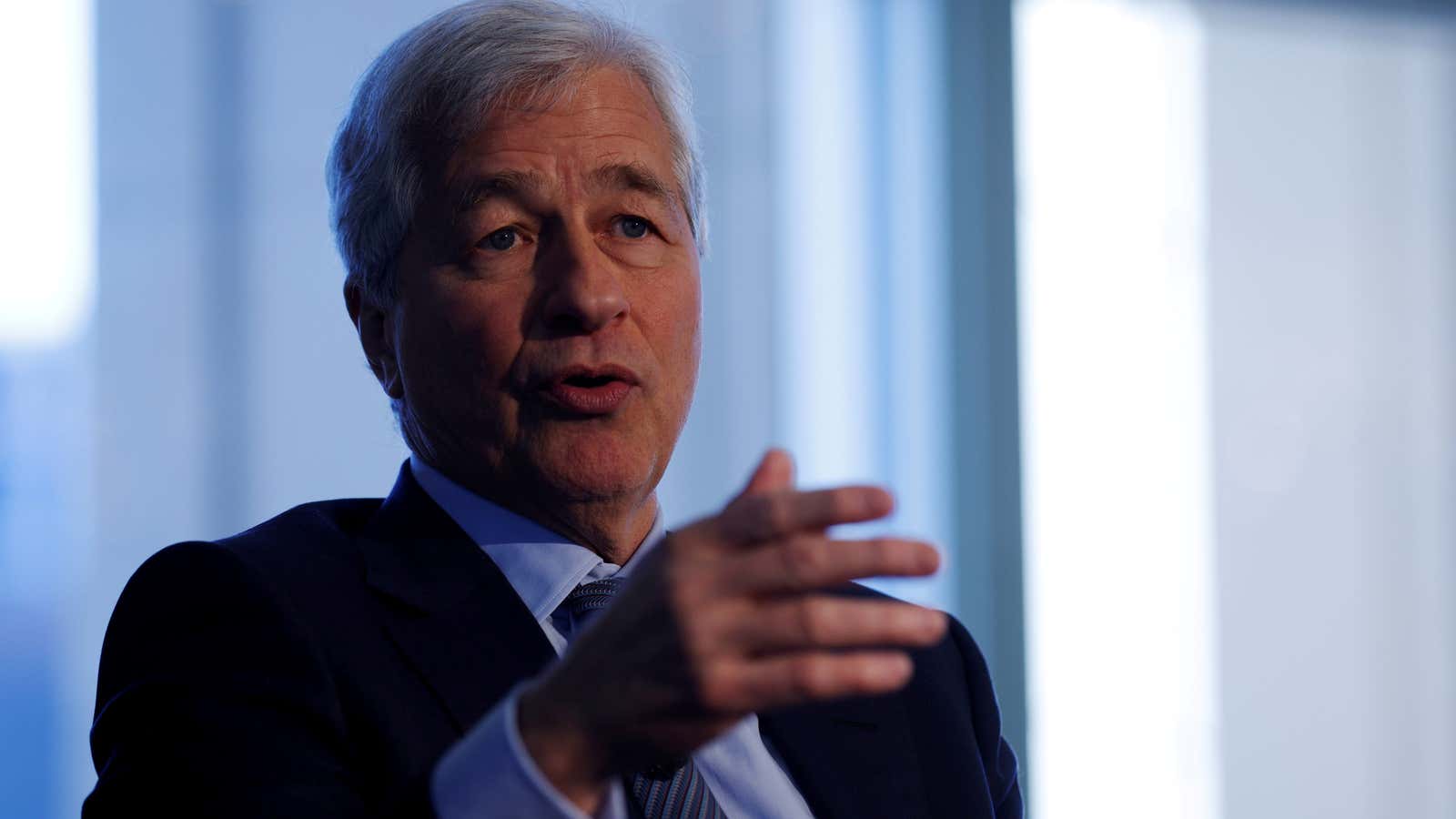JPMorgan Chase CEO Jamie Dimon made an offhand remark about China yesterday (Nov. 23) he soon came to regret. “We hope to be there for a long time,” he said of the country during a panel event at the Boston College Chief Executives Club. “The Communist Party is celebrating its 100th year. So is JPMorgan. And I’ll make you a bet we last longer.”
But Dimon quickly backtracked. “I was trying to emphasize the strength and longevity of our company,” he said in a statement from JPMorgan today.
The banker is well known for making off-the-cuff remarks: Back in 2017 Dimon complained about “the stupid shit we have to deal with in this country,” referring to issues affecting the financial industry in the US at the time. The stakes of these most recent comments are higher, though, as JPMorgan is currently trying to expand its presence in China.
What’s at stake for JPMorgan in China
JPMorgan stands to lose as much as $20 billion in China, according to company filings. It’s one of several Wall Street banks looking to take advantage of investment and wealth management opportunities in the world’s second-largest economy.
JPMorgan received approval in August from China’s securities regulatory commission to register for full ownership of its securities venture in the country—the first Wall Street firm to do so. Dimon said China represents “one of the largest opportunities in the world” for the bank and many of its clients.
“If a US company or bank does not have a China plan, then they are becoming less competitive globally,” says Brandon Hughes, CEO of FAO Global, a consultancy that advises clients on navigating the US and Chinese markets. He added that businesses approaching China have to operate under the assumption the Communist Party (CCP) is not going away anytime soon, and any thinking counter to that would be risky.
JPMorgan has been careful dealing with China in the past, telling staff in 2019 that the special administrative regions of Hong Kong and Macau, as well as self-governing Taiwan, should not be referred to as separate countries. But during yesterday’s panel Dimon said he didn’t see China trying to silence executives doing business in the country.
“If they start to tell you what you can say here, because you do business in China, that’s a problem,” he said. “They haven’t done it. They’re very smart, they’re very thoughtful.”
China has yet to react to Dimon’s remarks
Dimon received some criticism for his remarks on China’s Twitter-like platform, Weibo, but for now the most important player in this game—the CCP—has stayed silent on the issue. Foreign ministry spokesman Zhao Lijian declined to answer a question about Dimon during a press briefing today.
“It was an offhand remark, and he’s definitely aware of the potential impact,” Hughes says of Dimon. He said Dimon’s quick apology shows the JPMorgan executive is likely aware of how his comments “could be misconstrued.”
China is currently pursuing a crackdown on businesses both within and outside of the country that’s unlikely to let up anytime soon. A recent collapsed deal by the investment group Blackstone illustrated the potential hazards of doing business in China. While the firm’s co-founder Stephen Schwarzman was so connected to the country he was dubbed as former US president Donald Trump’s “China whisperer,” a $3 billion deal by Blackstone to buy Soho China, the property developer, fell through in September after Chinese regulatory officials put an end to it.
Still, this crackdown seems to be targeting business elites within China more than foreign executives, Hughes adds. “China has yet to try to influence a foreign CEO or company to the extent that they’re trying to maintain stability and control over Chinese net-worth individuals and CEOs,” he says.
